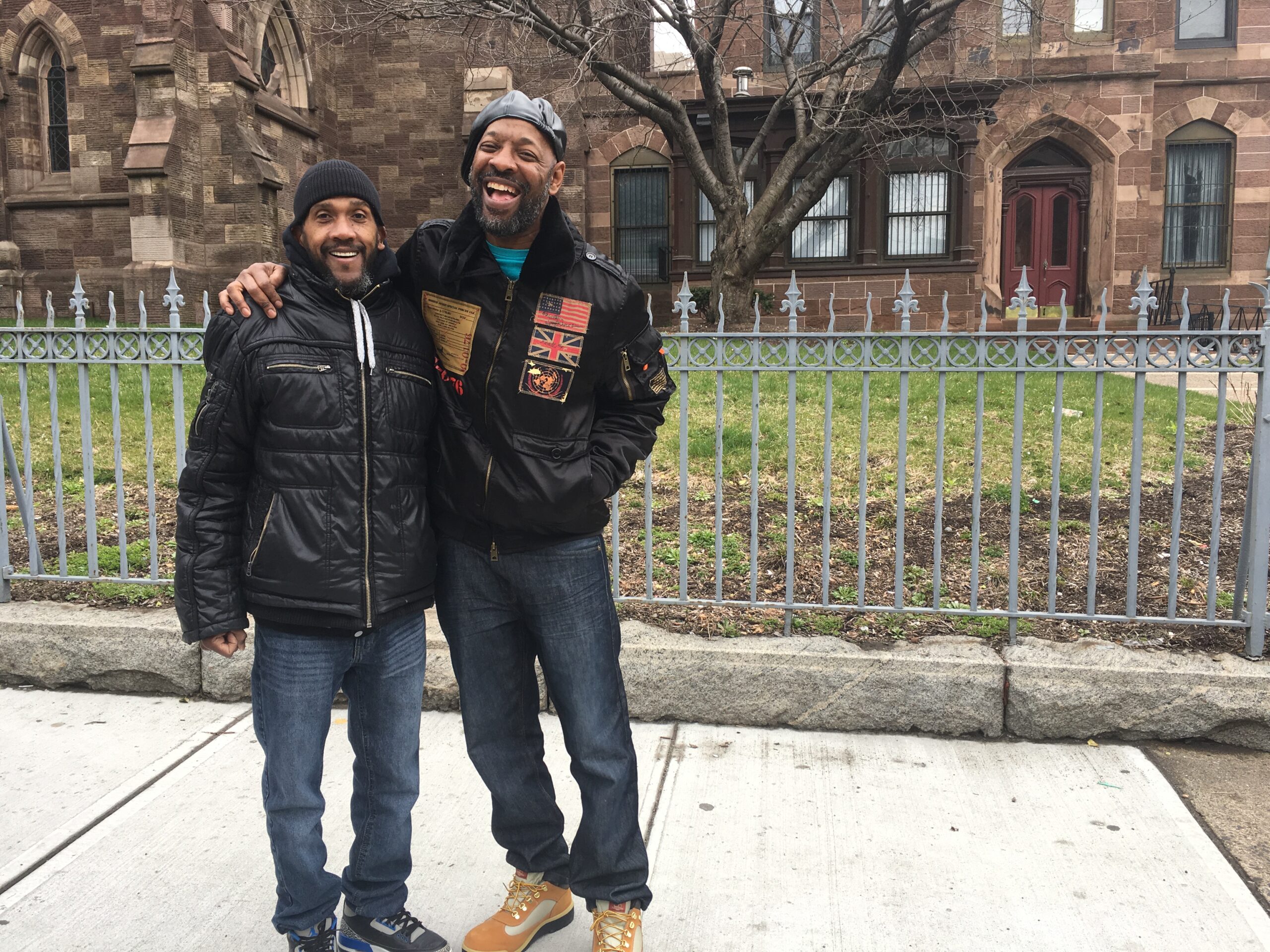Eric Kelley and Ralph Lee Exonerated Today After Wrongly Serving Over 24 Years
04.06.18
(Paterson, NJ – April 6, 2018) Today, Innocence Project client Eric Kelley and Centurion client Ralph Lee were exonerated of their 1996 felony murder and robbery convictions, marking the end in their fight for justice of more than 24 years.
Related: Eric Kelley and Ralph Lee Walk Out of Prison After 24-Year Fight for Freedom
In September 2017, a New Jersey Superior Court Judge vacated the convictions based on DNA evidence identifying another suspect. The post-conviction DNA testing of a hat recovered at the scene that the prosecution long maintained had been worn by the assailant excluded both Kelly and Lee and matched to another man who had recently been released from prison for committing a similar crime.
Kelley and Lee were released on bail shortly after, with the prosecution appealing both the decision and their release. However, in March 2018, the Superior Court of New Jersey Appellate Division unanimously affirmed the decision by Paterson Superior Court Judge Joseph Portelli vacating the convictions.
“Today was an unexpected, but a long-awaited victory for Eric Kelley and Ralph Lee. We went into court for a routine appearance and to our surprise the state announced it was dismissing the charges. We’ve had the DNA evidence excluding Mr. Kelley and Mr. Lee, and identifying an alternate suspect since 2014. It was unexpected but three years overdue,” said Vanessa Potkin, Post-Conviction Litigation Director at the Innocence Project.
Kelley and Lee were convicted of the 1993 murder of Tito Merino based largely on contradictory statements they made to police after the police took them into custody. At the Paterson detective bureau, the two were interrogated separately for several hours. Kelley, who suffers from significant cognitive impairments because of a brain injury from a car accident and has difficulties processing information, was interrogated first and allegedly admitted to the crime.
Detectives admitted that they fed the information supplied by Kelley when interrogating Lee. The interrogations were not recorded and there are no notes of what occurred. The only evidence of the confessions are typewritten statements officers prepared that were signed by Kelley and Lee. Kelley allegedly told police where the knife used in the murder was hidden and where stolen property was fenced. However, the police were not able to corroborate the claims, and the purported confessions were contradicted by the crime scene evidence.
Prior to their arrests, police were searching for one suspect in the murder of Merino, who was stabbed to death during the robbery of the Paterson video store where he worked. A green and purple plaid baseball hat that did not belong to anyone in the store and was not present prior to the murder was recovered near the victim’s body. Police submitted it for DNA testing believing it could help identify the killer, but DNA testing wasn’t as advanced then and the testing was inconclusive.
The court ordered retesting of the hat in October 2010 over the prosecutor’s opposition. Male DNA was identified, excluding Kelley and Lee. The profile was entered into the FBI’s DNA database of convicted felons and matched to a man who matched to the age and physical description of the person a witness observed in the store around the time of the murder. Just three months prior to the crime, this man had been released from prison after serving three years for a similar knifepoint robbery of a nearby store.
“We hope this case will spark changes in how prosecutors in New Jersey respond to potential wrongful conviction cases. New Jersey has been a leader when it comes to adopting reforms aimed at preventing wrongful convictions, but when it came to the individual cases of Mr. Kelley and Mr. Lee, we encountered unjustified and unrelenting resistance,” added Potkin. “Rather than investigate the person whose DNA was found at the scene, the prosecutors chose to bury their heads in the sand and cling to the conviction. The trial court and appellate court recognized not only the power of the new DNA evidence here, but also the problem of false confessions, mistaken identification, and law enforcement tunnel vision – leading causes of wrongful conviction.”
##
Leave a Reply
Thank you for visiting us. You can learn more about how we consider cases here. Please avoid sharing any personal information in the comments below and join us in making this a hate-speech free and safe space for everyone.
November 19, 2018 at 4:41 pm
April 11, 2018 at 10:02 am
Another “relentless, and hard-fought war” that was won through your perseverance.
Please keep up the fantastic work!

Did he receive any compensation?